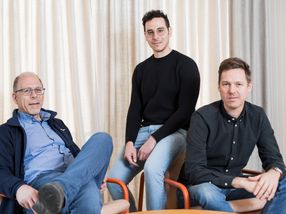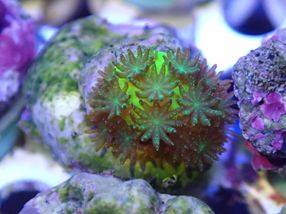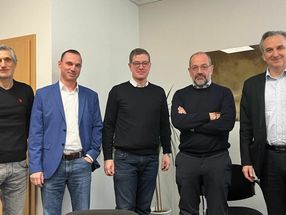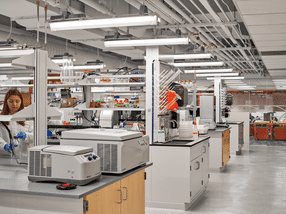Evonik acquires share in JeNaCell
Evonik has for the first time acquired shares in a young technology company in Germany via its venture capital arm. The Group invested in JeNaCell GmbH and now holds a minority share in the spin-off of Friedrich Schiller University in Jena. JeNaCell is a specialist for nanocellulose generated with biotechnology methods and has a production process that is unique in this field. The parties agreed not to disclose the volume of the transaction. "JeNaCell is an outstanding strategic fit for Evonik. The company's technology supplements our competencies in biotechnology and in the area of delivery systems for active medical ingredients," says Bernhard Mohr, the head of Venture Capital at Evonik.
Nadine Heßler, the founder and executive manager at JeNaCell, says the following in her comments on the transaction: "With Evonik, we have gained a strategic investor with extensive expertise in the set-up and operation of biotechnology production facilities and who can support us in accessing the market."
Among other applications, nanocellulose enables optimized treatment of burn wounds as well as chronic wounds. This is made possible thanks to its special material properties, which combine the benefits of plant-based cellulose with those of nanostructured materials. Nanocellulose is not only particularly absorbent, but also extremely tear-resistant. In addition, it stands out for its high biocompatibility. The material has a pleasant feel on the skin, regulates the moisture level of wounds, and can be removed painlessly because it does not stick to the skin.
This mix of properties will benefit burn victims in the future. Treatment with wound dressings made from nanocellulose is less painful, since the material has a cooling effect and the dressings can be changed easily. At the same time, the material keeps the affected areas moist, which accelerates healing and reduces scarring. The product launch is planned for the end of 2015. Nanocellulose can also be loaded with medical and cosmetic ingredients for controlled release over time.
Nanocellulose can be manufactured with biotechnology methods, using bacteria in a nutrient medium. The microorganisms produce the material in fiber network at the surface to protect themselves against drying out and other risks. It had previously not been possible to automate the production; fermentation had to be restarted after every harvest from the resting culture media. JeNaCell has now developed an automated production technology for nanocellulose in a continuous loop. The product is regularly removed without interfering with fermentation. This allows for producing large quantities of the material while reducing costs.
The scientific foundations for the JeNaCell production process were established as part of in-depth research conducted at Friedrich Schiller University in Jena. The company was established in 2012 by university chemists Nadine Heßler and Dana Kralisch.
Evonik's investment came as part of a Series A round, along with funds from bmt beteiligungsmanagement thüringen and the Sparkasse Jena bank. Further investors include High-Tech-Gründerfonds and Thuringia Foundation for Technology, Innovation and Research (STIFT), which had previously provided seed funding. The invested funds will be used, among other purposes, for the set-up and expansion of production at the Jena site as well as for sales and marketing.
Evonik wants to invest a total of €100 million in promising start-ups with innovative technologies and in leading specialized venture capital funds as part of its venture capital activities. Regional focus areas are Europe, the USA, and Asia. Evonik currently holds shares in six start-ups and three funds.
Most read news
Other news from the department business & finance

Get the life science industry in your inbox
From now on, don't miss a thing: Our newsletter for biotechnology, pharma and life sciences brings you up to date every Tuesday and Thursday. The latest industry news, product highlights and innovations - compact and easy to understand in your inbox. Researched by us so you don't have to.
























































